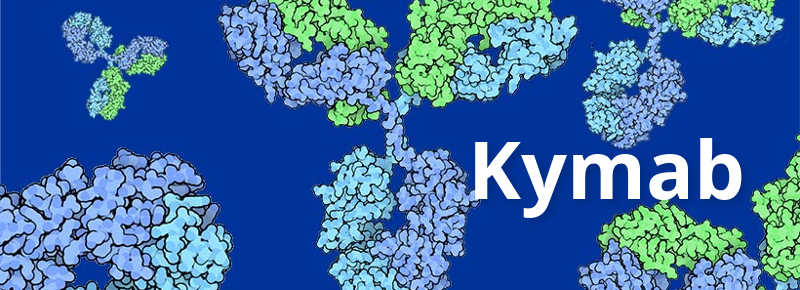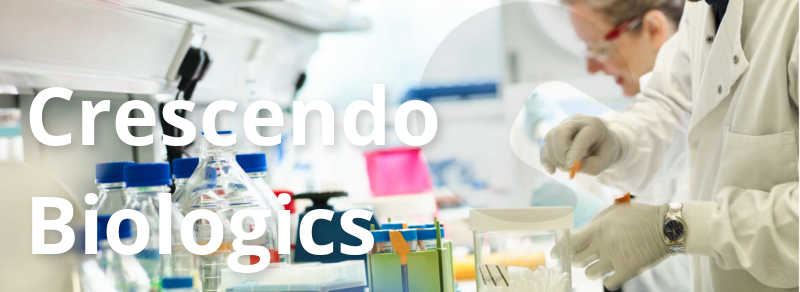Newsletter Signup - Under Article / In Page
"*" indicates required fields
Cambridge’s image is tied to its Hogwarts-like University and Nobel-hoarding academia, but there’s also an exciting entrepreneurial scene at the cutting edge of technology. We took a look at how big biotech is in the Silicon Fen.
Cambridge’s Biotech cluster has an exemplary hive of talent, infrastructure, and capital – enough to create the same vibe as the legendary Kendall Square in Boston. On the industry side, Cambridge boasts one of the research centers of MedImmune, one of the world’s biggest names in biologics. Its parent company, AstraZeneca, is also moving in, with its brand-new headquarters now nearing completion.
Cambridge is also the birthplace of several key biotechs that “have made it,” such as the oncology-focused Astex Pharmaceuticals; Solexa, which developed NGS technology now in the very powerful hands of Illumina; and the former Cambridge Antibody Technology, which developed the biggest biologicals blockbuster, Humira.
As if all these companies weren’t enough, there’s also a dense network of scientific consulting firms supporting the ecosystem. The most famous of all is probably the Medical Research Council (MRC), which played an instrumental role in the history of monoclonal antibodies. Then, of course, there’s the University of Cambridge. Not only was it the alma mater of several biotech entrepreneurs, it continues to attract a pool of talent that supports the companies based here.
Here is a list of the best and brightest Biotechs in Cambridge.
As usual, it’s in no particular order. Thanks to the people who helped us put the list together.

F-star moved into Cambridge in 2008, first with a research center and then as a company, moving its headquarters from the exciting biotech hub of Vienna. Its current CEO is John Haurum, a very successful Biotech entrepreneur, for whom Cambridge is “really the best location to build an antibody company in Europe.”
The biotech is developing a “plug-and-play” technology that can convert conventional antibodies in bispecific ones. Focused in immuno-oncology, F-star has inked deals with major pharma, including a massive deal with AbbVie, but its technology is also reaching neurodegenerative diseases with its €1B collaboration with Denali (US).

Founded in 2011, Mission Therapeutics focuses on diseases associated with the ubiquitin cell signaling pathway. It has had great success in its financing, raising €75M in one of the biggest rounds of European Biotech in 2016. We interviewed its CEO, Anker Lundemose, shortly after.
Although its platform for inhibitors of the deubiquitinating enzyme (DUB) it still in preclinical stage, Mission Therapeutic’s already has two candidates, USP30 and USP7, lined up to target Parkinson’s disease and cancer.

Founded in 2010, Kymab is developing embryonic stem cell technology. It has around 100 employees and has been rather successful with financing, getting a total of $220M from well-known names like the Wellcome Trust, the Gates Foundation, and Woodford, a massive Biotech investor.
Its platform, Kymouse, uses murine models to discover and produce monoclonal antibodies. These are targeting a broad range of diseases, including malaria, auto-immune disorders, and anemia. Its pipeline also features several candidates for immuno-oncology.

Founded by the “grandfather of biotech,” Greg Winter, Bicycle develops a new class of drugs – bicyclic peptides. Back in 2014, its Series A round bagged €25M. Its technology has since caught the eye of AstraZeneca, which struck a €1Bn deal to tackle respiratory, cardiovascular and metabolic diseases with Bicycle’s technology.
On its own, Bicycle is focused on oncology, where its peptides, in the form of Bicycle Drug Conjugates, have shown significant advantages over antibody-drug conjugates in preclinical models. Clinical trials for the first candidate are due to start in 2017.

Acacia Pharma focuses on conditions caused by aggressive therapies, such as major surgeries or chemotherapy. After a brief flirt with a €200M IPO in 2015, the company remains private.
Acacia’s pipeline has 4 different candidates in clinical development, the result of its strategy of repurposing existing drugs in new therapeutic indications and formulations. The most advanced one is Baremsis, which had smashing results in its Phase III trial.

Phico Therapeutics is built around its platform for novel antibiotics, SASPject. Since its inception, it has raised over £22M and earned substantial support from UK government programs and the Wellcome Trust.
SASPject uses nanotechnology to inject into bacteria the gene for SASPs, a protein that blocks bacterial DNA. This concept has yielded 3 candidates for different infections; its most advanced therapy, targeting the particularly difficult Staphylococcus aureus, has completed a Phase I trial.

Focused on novel antibody-based formats for therapies, Crescendo Biologics has raised a respectable £24M in its Seed and Series A rounds. However, this may be overshadowed by its recent deal with a Takeda subsidiary, which could be worth up to €712M.
The core of the Biotech is the Humabody platform, small antibody fragments which can be used as building blocks in different therapies. Crescendo’s pipeline is still at an early stage but has several programs in oncology. Its lead candidate, however, targets psoriasis and is currently in preclinical development.

Discuva develops novel antibiotics. Founded in 2009, its technology attracted the attention of Roche, in a collaboration that could yield a paycheck of up to $175M per approved product. Until those arrive, Discuva has had the support of different grants from the likes of Innovate UK.
It relies on two different technologies, which were briefly explained by its CEO during Labiotech Tour. SATIN discovers compounds that also target genes associated with resistance, while the SILK platform focuses on HIV.

GW Pharma is pioneering new cannabinoid-based drugs. The company is listed on the NASDAQ since its IPO in 2015 and has a market cap of over €2.7Bn ($3Bn). One of its products, helping multiple sclerosis patients with spasticity, has already reached the market.
On the clinical front, 2016 was a particularly good year for GW Pharma, with one of the year’s clinical success stories. Epidiolex is now nearing the approval process for Dravet syndrome and Lennox-Gastaut Syndrome (LGS), and the company has two more clinical candidates up its sleeve.

Abzena is the result of the merging of three Golden Triangle spin-offs and one of the successful IPOs of 2014. Eleven antibodies created using Abzena’s technologies are currently in clinical development, including a candidate for inflammatory diseases now in the hands of Roche.
Its research services range from antibody discovery to GMP manufacturing. In this interview, Abzena’s CEO explains how these services interact with the Biotech ecosystem in Cambridge and in the UK.

Focused on genome-based medicine, Congenica was founded in 2013 and based on research from the Wellcome Trust Sanger Institute. After winning several prizes and publishing in reputed journals like the Lancet and Nature, it now has partnerships with many UK hospitals for genomic diagnostics. Congenica is also working together with UCB (Belgium) in discovery programs.

Originally from Australia, Biosceptre moved to Cambridge in 2014. It focuses on a particular target for cancer, the membrane ion channel nfP2X7, and develops different ways to make it into a therapy, such as antibodies, vaccines, and even topical treatments. Biosceptre has 5 candidates in development, including one in Phase I trials for basal cell carcinoma.

Inivata focuses on clinical cancer genomics. Founded in 2014, it attracted significant investors like Johnson & Johnson Innovation and Woodford. Last year, its Series A raised £31.5M.
Its products support personalized decisions about cancer treatment with just a blood test, bypassing biopsies, by analyzing circulating tumor DNA (ctDNA). Clinical data from its use in lung cancer patients was even presented at the last ASCO conference.

Storm Therapeutics is a brand-new addition to the famous Babraham Campus. It became a spin-out of the University of Cambridge’s Gurdon Institute half a year ago, raising £12M in its Series A round. Some of the interested parties are Merck Ventures and Pfizer Venture Investments.
It was founded on novel research in RNA epigenetics, and its objective is to develop small molecules that target RNA-modifying enzymes. The ability to modulate RNA modifications can open up novel therapeutic targets in cancer.

Defining itself as “gene editing company”, Horizon Discovery is listed on the London Stock Exchange, with a market cap of roughly €190M (£160M) and yearly revenues of around €20M.
Horizon is part developer and seller of cell lines, part research contractor, and develops its own programs on immuno-oncology and cell therapy as well. Among its deals is a Cambridge romance with Abcam. The company has also recently stepped up its CRISPR game with a new licensing deal.
As you can see from this list, Cambridge boasts many exciting biotechs and a good mix of companies with products on the market, research service providers and early-stage spin-offs. Many biotechs are developing ambitious platforms, often based on research developed nearby and still attract money in the discovery and preclinical stages. The cluster effect at work?
Images by Konstantin, molekuul_be, royaltystockphoto.com, Kateryna Kon, OpenRangeStock, Naeblys (Shutterstock), Mission Therapeutics, Kymab, Bicycle Therapeutics, Acacia Pharma, Phico Therapeutics, Crescendo Biologics, Congenica, Inivata.






